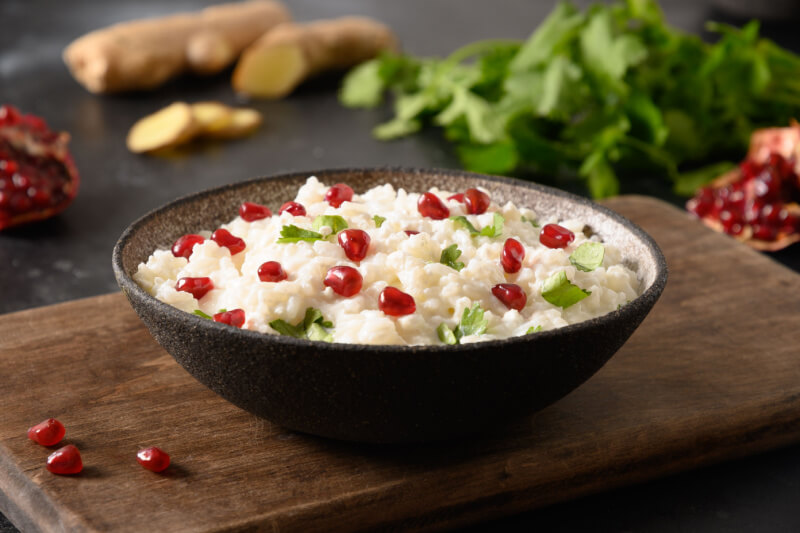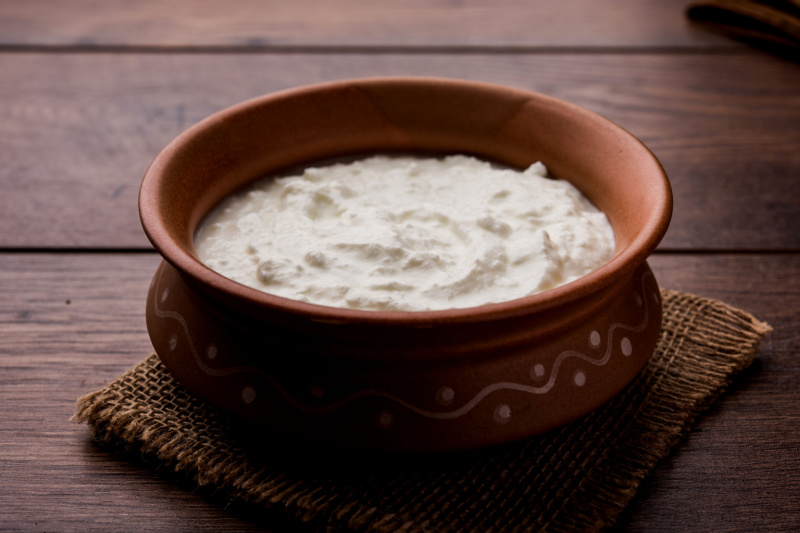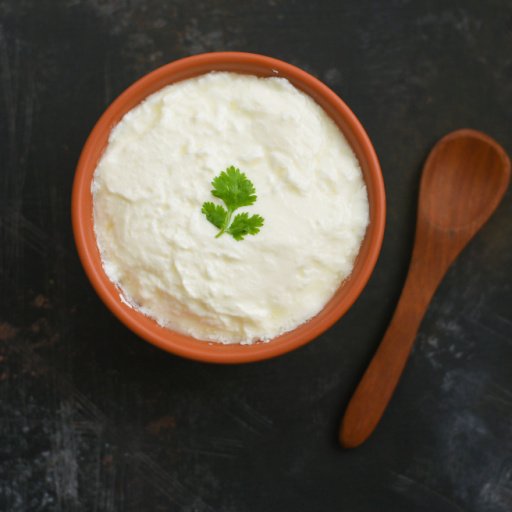Curd or dahi is a staple food in the Indian kitchen pantry. It is a naturally fermented food and one of the simplest dishes, no matter what you pair it with. However, its uses extend way beyond everyday recipes. Curd plays a vital role in tackling heat and keeping the body cool, especially during summer.
What is Curd and How is it Used?
Curd is prepared by fermenting milk with lactic bacteria. In Indian homes this is achieved by adding a spoon of old curd to milk and letting it set overnight. It is a great addition to your diet for good gut health as it works as a probiotic. It can be had on it’s own, with some salt or sugar in it, some people even like curd with some “tadka” on top. It is used in several Indian recipes like kadhi, dahi vada, curd rice, raita, etc. It can also be enjoyed in the form of lassi or buttermilk.

Ideal time to eat curd
Curd is ideally enjoyed during day time in order to reap all benefits and to avoid all the problems that might aggravate due to its cooling nature. It is heavy in nature so makes for a good breakfast or lunch accompaniment. Consuming curd during the night can cause digestive discomfort and disrupt sleep.
Health Benefits of Eating Curd Daily

Improves Digestion
Curd has probiotic bacteria that supports the gut by balancing gut flora. This reduces inflammation and aids digestion which prevents bloating and problems like constipation. Mildly lactose intolerant people can also enjoy curd due to its low lactose content.
Strengthens Immunity
The probiotics in curd also strengthens the body’s immunity and prepares us to fight infections.
Supports Weight Management
Curd is rich in proteins and calcium, keeping you satiated for a long time. Therefore, it helps you maintain a healthy body mass index (BMI), improves metabolism, reduces belly fat, and helps to avoid binge eating resulting in weight loss.
Enhances Skin Health
Curd benefits for the skin are many. The curdling process of curd makes use of edible acidic substances, like vinegar or lemon juice. These acidic compounds contain antibacterial and antifungal properties that can help fight various skin problems. You can mix curd with lime juice and apply it on your face for 10 minutes for hydrated skin. Curd can also gently exfoliate the skin, thereby acting as a natural remedy to treat dark spots. The presence of lactic acid in the curd sheds dead skin cells and aids in the formation of new, healthy skin cells. You can also add honey and cucumber to the curd mixture.
Promotes Heart Health
Curd is known to increase good cholesterol or high-density lipoprotein (HDL), thereby reducing the risk of heart disease.
Improves Bone Health
Loaded with calcium and phosphorus, curd strengthens bones and teeth, lowering the risk of osteoporosis and other bone-related issues.
Helps in Managing Stress and Anxiety
Curd prevents the accumulation of cortisol, or the stress hormone, in your body. Excess cortisol can lead to anxiety, high blood pressure and hypertension.
Side Effects of Eating Curd: What You Should Know
Lactose Intolerance
Even though curd doesn’t have high lactose content because it is fermented, it can cause digestive issues in people who have low lactose tolerance.
Allergic Reactions
Those with milk allergies should avoid curd altogether, as even small amounts can trigger symptoms ranging from skin rashes to digestive upset or more severe reactions
Cold Sensitivity
Curd has major cooling properties. It reduces inflammation in the body, however this can backfire during cold weather or for people suffering with cold. You can also avoid consuming curd at night for the same reason,
Increased Mucus Production
Ayurveda suggests that curd’s sweet and tart properties may increase mucus production and worsen symptoms in those with sinusitis, asthma, or frequent colds. But modern studies have a mixed view, with some showing no association between dairy consumption and mucus.
Difference between curd and yogurt
Curd is a product of lactic milk fermentation. It is obtained by coagulating milk in a sequential process called curdling. Mix a yogurt starter with warm milk and allow it to ferment for hours. Boiling the milk prevents it from spoiling during the fermentation process. Keep in mind that if the milk is too hot, it can coagulate and become grainy, and if it is cold, the curd won’t set at all. The consistency of the flowing milk will gradually transform into a thick pudding-like texture. The final product of this bacterial fermentation gives curd a tangy taste.
Yogurt is made by commercial fermentation of milk by ingesting a particular bacterial strain. The only difference in the health benefits of these two dairy products is that Greek yogurt contains twice the amount of protein as curd. Therefore, people who are into weight management opt for plain Greek yogurt to fulfill their protein requirements.
Include this superfood in your diet today.
Conclusion
Including curd in your daily diet improves your gut flora by delivering prebiotic and probiotic support. Curd has bone-building nutrients, properties that support heart and skin wellness, and even has possible mental health benefits. However, moderation matters, and those with lactose intolerance, dairy sensitivities or respiratory concerns must consume curd cautiously. Opt for plain, low-fat curd, enjoy it primarily during the day, and pair it with balanced meals for the best results
Key Takeaways
- Curd is commonly used in a variety of recipes, such as dahi vada, kadhi, lassi, buttermilk, curd rice, and papdi chaat.
- The ideal time to consume curd is either as a post-meal dish or as part of a meal.
- The probiotics found in curd contain beneficial bacteria that promote gut health and support the digestive system.
Frequently Asked Questions
Yes, if you are lactose intolerant or have dairy allergies, curd may cause major digestive discomfort. Curd can also aggravate colds and flus.
Yes, curd helps you feel full for longer and can help in your weight loss journey. It also supports better gut health which helps improve digestion and metabolism.
It depends. Individuals prone to respiratory issues, increased mucus, or sinus problems may experience worsened symptoms, so curd is best avoided during cold weather.
Curd supports gut health and digestion, helping in natural detoxification through regular bowel movements, though it is not a direct “detox” food
For most healthy people, daily curd brings digestive, immune, heart, and bone health benefits. Moderation and timing matter
Stay tuned to the Activ Living Community. Keep up to date with the latest health tips and trends through expert videos, podcasts, articles, and much more on nutrition, fitness, mindfulness, and lifestyle conditions like Asthma, Blood Pressure, Cholesterol, and Diabetes. Activ Living ke saath sahi sehat ki shuruat ABHI karo.





 1800-270-7000
1800-270-7000






